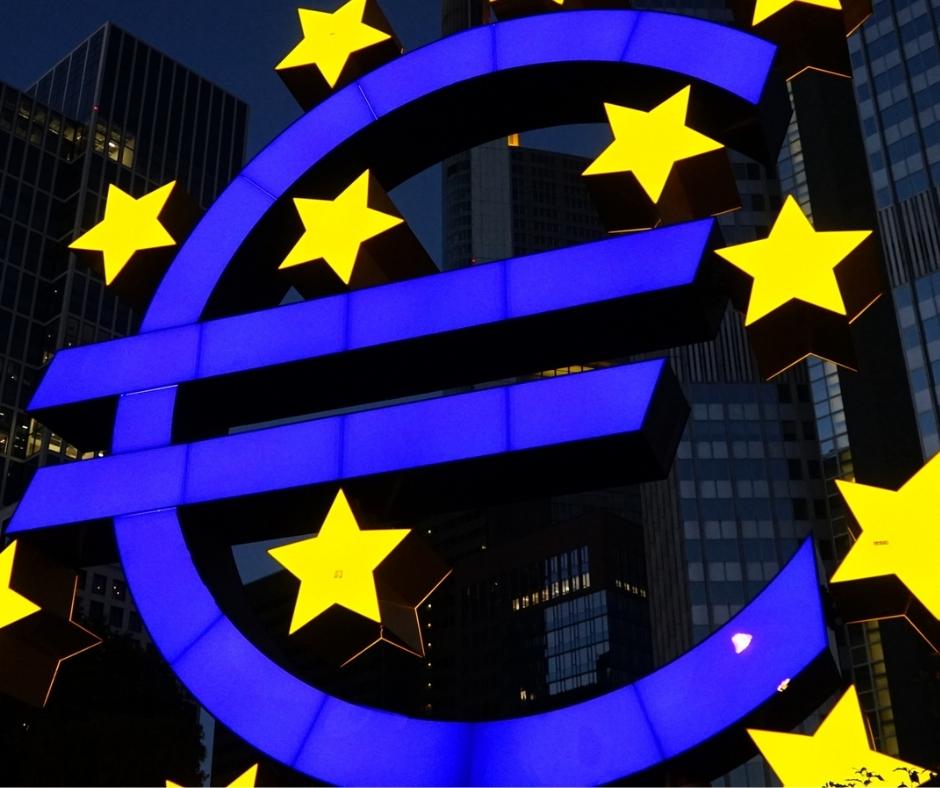Eurozone investor confidence has plunged in September 2025, dropping to its lowest level since April. This sudden fall in Eurozone investor confidence highlights renewed concerns about slowing growth, trade tensions, and the overall health of the Eurozone economy.
According to the latest Sentix survey, investor morale declined sharply from –3.7 in August to –9.2 in September. Analysts say the data paints a worrying picture, especially as both current conditions and future expectations deteriorated at the same time.
Germany’s Deepening Crisis
Germany, the largest economy in the eurozone, has emerged as the weakest link. Confidence levels there sank to –22.1, underscoring how heavily exposed the country is to industrial weakness and international trade pressures. With new U.S. tariffs hitting German exports, manufacturers face reduced demand just as energy costs remain unstable.
For years, Germany’s industrial strength has been the engine behind European growth. But now, falling factory orders and weak consumer demand are dragging down Eurozone investor confidence across the region. If Berlin cannot stabilize its economy, the eurozone as a whole may struggle to regain momentum.
ECB’s Tightrope on Inflation
The European Central Bank (ECB) now faces a tough balancing act. Inflation in the eurozone remains above target, leaving limited space for interest rate cuts. At the same time, falling Eurozone investor confidence calls for supportive measures to prevent a deeper downturn.
ECB policymakers have signaled caution, emphasizing stability over aggressive stimulus. Yet many economists argue that without swift action, weaker confidence could spread from financial markets into real economic activity. Businesses may slow investment, households could cut back on spending, and growth could stall further.
👉 Read the ECB’s latest policy statement here
Investor Sentiment and Market Reaction
Markets reacted quickly to the slump in Eurozone investor confidence. The euro lost ground against the U.S. dollar, reflecting investor fears of weaker returns in Europe. Stock exchanges across the region opened with mixed results, with banks and industrial companies suffering the sharpest declines.
Bond yields also dipped as investors moved into safer assets. Analysts noted that the shift signals caution about Europe’s near-term economic outlook. With sentiment now firmly in negative territory, traders expect more volatility in the weeks ahead.
Global Spillover Effects
Weakness in Eurozone investor confidence has implications far beyond Europe. Asian economies such as South Korea and Japan, which rely on exports to the eurozone, could face reduced demand. Meanwhile, investors are increasingly turning their attention to China’s bond market, where yields remain relatively stable.
In North America, analysts warn that prolonged European weakness could weigh on multinational companies that depend on the eurozone for a significant portion of their revenues. This makes the eurozone’s confidence crisis a truly global concern.
Structural Challenges Ahead
Beyond immediate concerns, the eurozone continues to grapple with long-term challenges. Aging populations, reliance on imported energy, and uneven growth between northern and southern states all contribute to fragile sentiment.
Falling Eurozone investor confidence may be a symptom of these deeper issues. Unless structural reforms are introduced, temporary rebounds in sentiment could prove short-lived.
What to Expect Next
The months ahead will be decisive for Europe. If confidence fails to recover, businesses may delay investment decisions, and consumers could rein in spending. This combination risks tipping the eurozone into recession during the winter months.
Policymakers face growing calls for targeted fiscal support, especially in Germany and France. However, political divisions across the eurozone may complicate the rollout of coordinated measures. For now, investors remain cautious.
“Sentiment is often the first signal,” one Frankfurt-based strategist explained. “If Eurozone investor confidence doesn’t stabilize, it could drag the real economy down with it.







